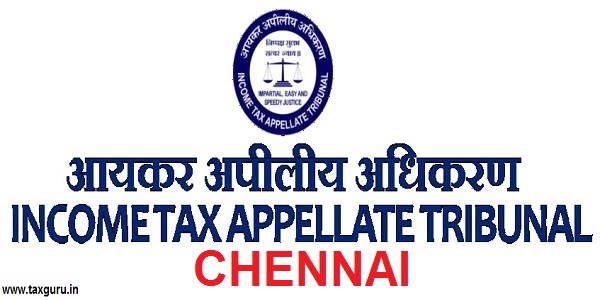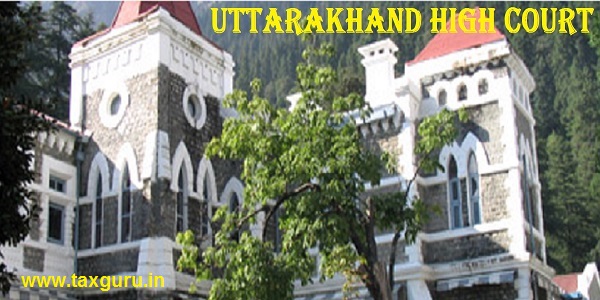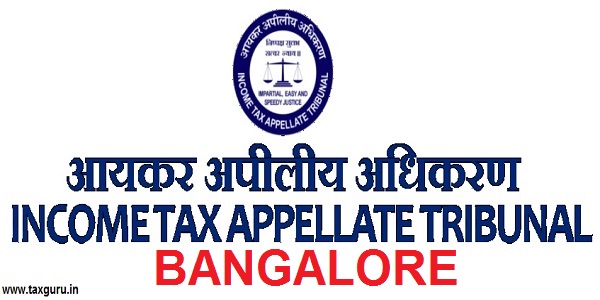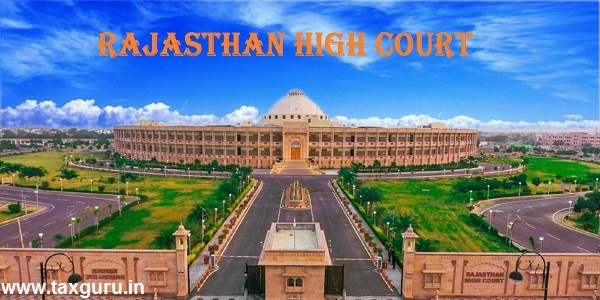Case Law Details
CIT Vs H.P. Housing Board (Himachal Pradesh High Court)
In this legal analysis, understand if interest paid by H.P. Housing Board is considered damages or interest under the Income-tax Act.
In the case in hand it stands proved that in case the houses were ready within the stipulated period the Board would not be liable to pay interest. When construction of a house is delayed there can be escalation in the cost of construction. The allottee looses the right to use the house and is deprived of the rental income from such house. He is also deprived of the right of living in his own house. In these circumstances the amount which is paid by the Board is not payment of interest but in our view is payment of damages to compensate the allottee for the delay in the construction of his house/flat and the harassment caused to him. It may be true that this compensation has been calculated in terms of interest but this is because the parties by mutual agreement agreed to find out a suitable and convenient system of calculating the damages which would be uniform across the Board for all the allottees.
While taking this view we are relying upon the judgement of the Apex Court in Bikram Singh and others vs. Land Acquisition Collector and others (1997) 224 ITR 551. In the case before the Apex Court the question was whether the interest paid to the persons whose land had been compulsory acquired under Sections 28 and 31 of the Land Acquisition Act was a revenue receipt or a capital receipt. The Apex Court held that though it was termed as interest on delayed payment, it was actually a revenue receipt and therefore the provisions of Section 194A of the Income tax Act would have no application. It would be pertinent to mention that the National Consumer Dispute Redressal Commission in Revision Petition No. 2244 of 1999 titled as G.D.A. vs. Dr. N.K.Gupta under similar situation held that when the State Commission directed payment of interest to the allottees for delayed completion of flats the same did not fall within the purview of Section 194A of the Income-tax Act.
In the present case the allottees had not given the money to the Board by way of deposit nor had the Board borrowed the amount from the allottees. The amount was paid under a self financing scheme for construction of the flat and the interest was paid on account of damages suffered by the claimant for delay in completion of the flats.
In view of the above discussion, we answer both the questions in favour of the assessee and against the revenue. The appeal is accordingly dismissed with no order as to costs.
FULL TEXT OF THE JUDGMENT/ORDER OF HIMACHAL PRADESH HIGH COURT
The following interesting questions arise for decision in the present case: –
1. Whether on the facts and in the circumstances of the case the Hon’ble Tribunal was right in law that the interest paid/credited by the Housing Board on the amount deposited by the allottees on account of delayed allotment of flats does not fall under the definition of interest as assigned to it in sub-section (28A) of Section 2 of the Income-tax Act, 1961?
2. Whether on the facts and in the circumstances of the case, the Hon’ble Tribunal was right in holding that the interest paid or credited by the Housing Board to its allottees (payees) was of capital nature and thus not subject to deduction of tax at source when as per law it is the recipient (payee) who can decide if a particular receipt (interest in this case) is of revenue or capital in nature.”
2. Briefly stated the facts are that the assessee-Housing Board had floated a self financing scheme for sale of houses/flats wherein the allottees were required to deposit some amount with the petitioner and construction was to be carried out out of these amounts. One of the conditions of the terms of allotment was that in case the possession of the house/flat is not given to the allottee within a particular time frame then the assessee-Board was liable to pay interest to the allottees on the money received by it. It appears that there was delay in construction of the houses and thereafter the Housing Board paid interest at the agreed rate to the allottees in terms of the letter of allotment. The Income-tax Officer(TDS) carried out a survey and found that the assessee had not deducted tax at source and he held that the amount paid by the assessee to the allottees was in the nature of interest within the meaning of Section 2(28A) of the Income-tax Act and in terms of Section 194A of the Income-tax Act, tax had to be deducted at source. He decided the case accordingly.
3. The assessee filed an appeal and the Commissioner of Income-tax held that the amount paid by the Board was not really interest within the meaning of Section 2(28A) but actually compensation for the delay in construction of the house and handing over possession of the same to the allottees. It came to the conclusion that the interest was merely a convenient method to calculate the amount of compensation in order to standardize it. The revenue filed an appeal against the said judgement, which was dismissed. Hence, this appeal.
4. To appreciate the rival contention of the parties, it would be appropriate to refer to the relevant portion of Sections 2(28A) and 194A of the Income-tax Act, which read as follows:-
“Section 2(28A): Interest means interest payable in any manner in respect of any moneys borrowed or debt incurred (including a deposit, claim or other similar right or obligation) and includes any service fee or other charge in respect of the moneys borrowed or debt incurred or in respect of any credit facility which has not been utilized.
Section 194A: (1) Any person not being an individual or a Hindu undivided family, who is responsible for paying to a resident any income by way of interest other than income (by way of interest on securities) shall, at the time of credit of such income to the account of the payee or at the time of payment thereof in cash or by issue of a cheque or draft or by any other mode, whichever is earlier, deduct income-tax thereon at the rates in force.”
5. Ms. Vandana Kuthiala, learned counsel for the revenue, has placed reliance on the judgement of the Madras High Court in Viswapriya Financial Services and Securities Ltd. Vs. Commissioner of Income-tax (2002) 258 ITR 496, wherein the Madras High Court held as follows:-
“The definition of interest, after referring to the interest payable in any manner in respect of any moneys borrowed or debt incurred proceeds to include in the terms money borrowed or debt incurred, deposits, claims and “other similar right or obligation” and further includes any service fee or other charge in respect of the moneys borrowed or debt incurred which would include deposit, claim or other similar right or obligation, as also in respect of any credit facility which has not been utilized. This statutory definition regards amounts which may not otherwise be regarded as interest as interest for the purpose of the statute. Even amounts payable in transactions where money has not been borrowed and debut has not been incurred are brought within the scope of the definition as in the case of a service fee paid in respect of a credit facility which has not been utilized. Even in cases where there is no relationship of debtor and creditor or borrower and lender, if payment is made in any manner in respect of any moneys received as deposits or on money claims or rights or obligations incurred in relation to money, such payment is, by this statutory definition, regarded as interest.”
6. Ms. Kuthiala, relying upon the aforesaid observation submits that the allottees had deposited some amount with the Board and now when interest was being paid on this amount the same was interest within the meaning of Section 2(28A) and in terms of Section 194A of the Act tax at source had to be deducted by the Board.
7. In our view this judgement is not applicable to the facts of the present case. In the case before the High Court the assessee was a Company engaged in retail finance services. It had assured the investors that if they invest money with the assessee company they would be refunded guaranteed repayment of amount invested within 36 months at a minimum return of 1.5 percent. The return could be more than 1.5 percent but the company had promised that under no circumstance the return would be less than the guaranteed return of 1.5 percent. It was in this contest that the Madras High Court held that what was paid by the Company was interest and nothing else. There can be no dispute with the law laid down by the Madras High Court but the question which arises in the present case is whether the amount paid by the assessee is by way of interest or otherwise.
8. In the case in hand it stands proved that in case the houses were ready within the stipulated period the Board would not be liable to pay interest. When construction of a house is delayed there can be escalation in the cost of construction. The allottee looses the right to use the house and is deprived of the rental income from such house. He is also deprived of the right of living in his own house. In these circumstances the amount which is paid by the Board is not payment of interest but in our view is payment of damages to compensate the allottee for the delay in the construction of his house/flat and the harassment caused to him. It may be true that this compensation has been calculated in terms of interest but this is because the parties by mutual agreement agreed to find out a suitable and convenient system of calculating the damages which would be uniform across the Board for all the allottees.
9. While taking this view we are relying upon the judgement of the Apex Court in Bikram Singh and others vs. Land Acquisition Collector and others (1997) 224 ITR 551. In the case before the Apex Court the question was whether the interest paid to the persons whose land had been compulsory acquired under Sections 28 and 31 of the Land Acquisition Act was a revenue receipt or a capital receipt. The Apex Court held that though it was termed as interest on delayed payment, it was actually a revenue receipt and therefore the provisions of Section 194A of the Income tax Act would have no application. It would be pertinent to mention that the National Consumer Dispute Redressal Commission in Revision Petition No. 2244 of 1999 titled as G.D.A. vs. Dr. N.K.Gupta under similar situation held that when the State Commission directed payment of interest to the allottees for delayed completion of flats the same did not fall within the purview of Section 194A of the Income-tax Act.
10. In the present case the allottees had not given the money to the Board by way of deposit nor had the Board borrowed the amount from the allottees. The amount was paid under a self financing scheme for construction of the flat and the interest was paid on account of damages suffered by the claimant for delay in completion of the flats.
11. In view of the above discussion, we answer both the questions in favour of the assessee and against the revenue. The appeal is accordingly dismissed with no order as to costs.

























